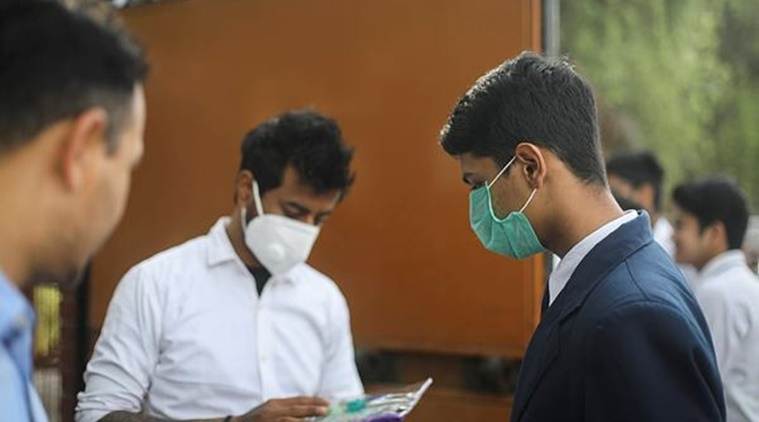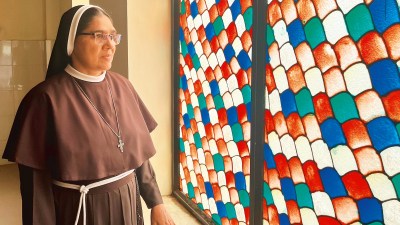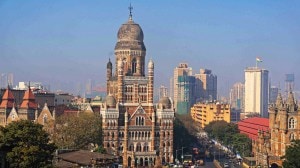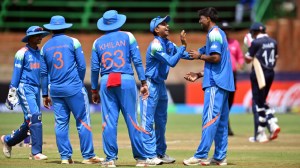The age of industrialisation in History; area of a triangle and frustum of a cone in Mathematics; and in Science, physical properties of metals and non-metals, and the ‘Tyndall Effect’ on the eye. These are among concepts and topics that Class 10 students may not be assessed on in their Board exams next year, and which students can cover through “self-study, assignments or projects”, according to a draft document prepared by the National Council of Educational Research and Training (NCERT) this week.

Don’t miss from Explained | SSC-HSC exams: Why evaluation was delayed, when results are expected
The draft document prepared by the Council advises against “cutting syllabus” as it could create gaps in learning and prove “detrimental” to students for their higher studies. Instead, it “reorganises” the syllabus into topics and themes that are new and need to be taught by the teacher, and those that students can cover through self-study.
The latter includes concepts or themes “which have been learnt in earlier classes and are elaborated in the present class with examples and implications”.
ExplainedAgainst cuts in syllabus
The government had sought suggestions from the public on reducing syllabus given the shorter academic year because of Covid-enforced shutdowns. NCERT is not in favour of dropping chapters, as it could create gaps in learning.
The document says that while the topics taught by the teacher may be assessed in the Board examination, the self-study concepts can be covered in the school’s internal assessment. The CBSE sets aside 20 marks in each subject for internal assessment of the student. This, if accepted by CBSE, would mean that the Board examination next year will not assess students on topics and concepts that they have covered through self-study, assignments and projects.
Read | Don’t hold board exams: Manish Sisodia to HRD Ministry
Story continues below this ad
Among the topics in Science that NCERT has suggested for self-study include the ‘Tyndall Effect’ in the chapter titled ‘The Human Eye and the Colourful World’. This is justified on the ground that the topic was covered in Class 8. Two chapters — ‘Sources of Energy’ and ‘Sustainable Management of Natural Resources – have also been listed for “self-study followed by assignments and discussion”.
Read | Himachal board results declared, over 76% Class XII students clear exams
In Political Science, Bolivia’s water war and the movement for democracy in Nepal are among topics that may not figure in the Board exam. In History, chapters ‘The Age of Industrialization’ and ‘Print Culture and the Modern World’ have been suggested for “project work and innovative activities”. The latter looks at the development of print (books, journals, newspapers, prints of famous paintings etc), from its beginnings in East Asia to its expansion in Europe and India.
According to sources in the NCERT, the draft document is still under discussion and could undergo further changes. The Indian Express could not reach NCERT chairman Hrushikesh Senapaty for a comment.
Story continues below this ad
Read | Karnataka holds English II PU exam following social distancing guidelines
Sources in the Council said the CBSE will finally decide whether to accept NCERT’s suggestions or not.
HRD Minister Ramesh Pokhriyal had on June 9 sought public suggestions on reducing the syllabus in the wake of schools shutting due to the pandemic. He said in a tweet, “In view of the current circumstances and after receiving a lot of requests from parents and teachers, we are contemplating the option of reduction in the syllabus and instructional hours for the coming academic year.”
Clarifications
Responding to this report, a spokesperson for the NCERT sent the following rejoinder: “The article is an attempt to misguide students, teachers and parents in this COVID-19 period…NCERT has not published any guidelines, or issued circular or shared with public the content, which this article reports. Therefore, this article is baseless and untrue. Given the sensitivity of the issues related to syllabus and textbooks which has bearing on more than 25 crore students, NCERT attempts to go through a number of steps including thorough discussion, not only internally but also with outside experts. NCERT also discusses with states’ educational agencies including school education boards before finalising any document.”
Story continues below this ad
The Indian Express replies: The report clearly states that the NCERT has prepared a draft document that is “still under discussion and could undergo further changes.”
The Indian Express has accessed the 13-page draft that lists, subject-wise, topics and themes that Class 10 students can cover through “self-study, assignments or projects” this year. Its key points were highlighted in the report. This draft was circulated within the NCERT this week. The Indian Express stands by its report.

 The CBSE prescribes only NCERT textbooks to its affiliated schools. (Representational image)
The CBSE prescribes only NCERT textbooks to its affiliated schools. (Representational image)






























